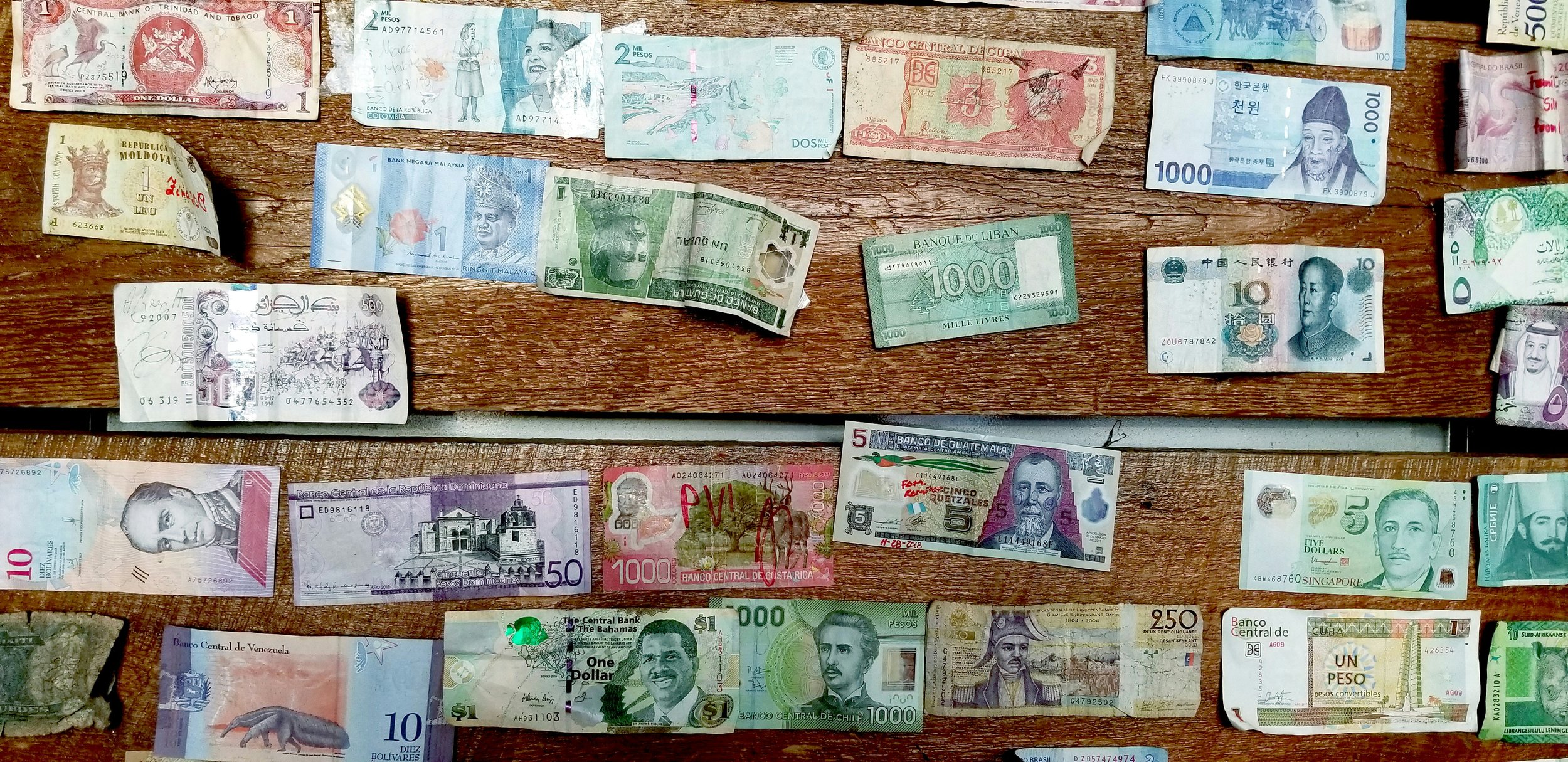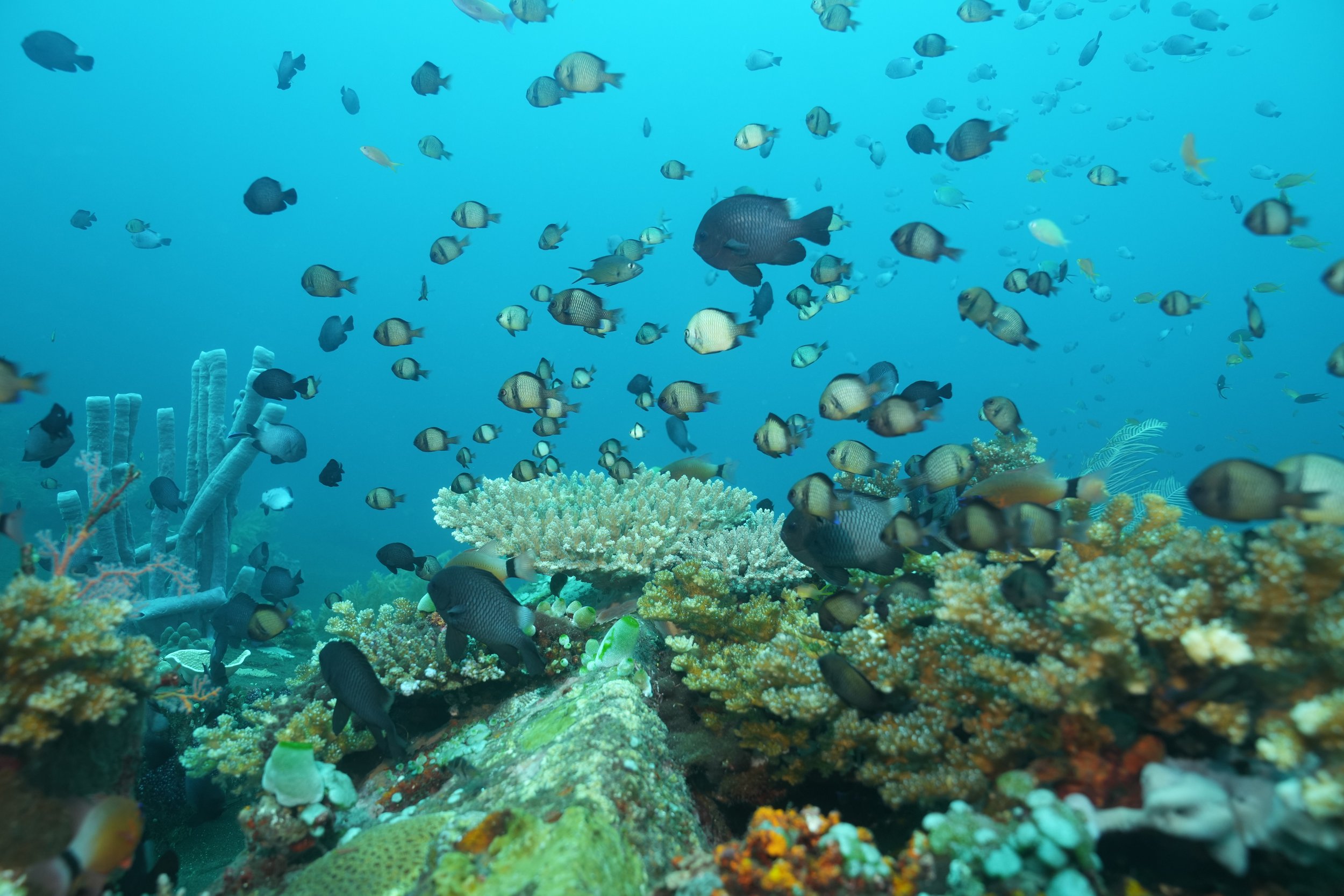Attending PingYao International Festival
It all begins with an idea.
I’m thrilled to share that my underwater photography series has been officially selected for the 2024 Pingyao International Photography Festival—one of Asia’s most prestigious photography events! This recognition is a surreal milestone for me, as my work will be exhibited alongside inspiring artists from around the world.
This series, shot during my dives in Bali and the Coral Triangle, captures the fragile beauty of marine ecosystems—from vibrant coral gardens to elusive reef creatures. Being chosen by PIP is not just a personal achievement; it’s a chance to amplify the message of ocean conservation through visual storytelling.
我的摄影作品入选平遥国际摄影节啦!!这组照片是在 23 年冬天的潜水旅行中拍摄的。我在获得了水肺潜水和自由潜水的执照后能够潜入以前从未到过的深度。之前只能在纪录片中看到的世界在我眼前展开。那里的海水就像其他潜水员说的那样,是蓝色和绿色的果冻。五彩缤纷的小丑鱼有着黑白条纹和橙色的外表,在珊瑚间游动。珊瑚的形状和大小各异,颜色鲜艳。它们聚集在一起,形成了壮丽的结构,就像亚特兰蒂斯,这个消失了数千年的神话之城。这是我从未见过的世界,使我深深地沉醉其中。
Academic Review Based on Scuba Diving Economy
It all begins with an idea.
The Role of Scuba Diving in the Economic Development of Bali, Indonesia
-Liu Ria
Abstract
Bali, Indonesia, is one of the world’s premier scuba diving destinations, attracting millions of tourists annually. The growth of the scuba diving industry has significantly contributed to Bali’s local economy by generating employment, fostering small businesses, and promoting marine conservation efforts. This review examines the economic impact of scuba diving in Bali, focusing on tourism revenue, employment opportunities, infrastructure development, and environmental sustainability. The findings suggest that while scuba diving has been a key driver of economic growth, sustainable practices are necessary to ensure long-term benefits for local communities.
Introduction
Bali’s economy has historically relied on agriculture, but in recent decades, tourism—particularly scuba diving—has become a major economic pillar. The island’s rich marine biodiversity, including coral reefs and diverse marine life, has made it a global hotspot for recreational diving (Hampton & Jeyacheya, 2020). This review explores how scuba diving has shaped Bali’s economy, analyzing its contributions to employment, business development, and environmental policies.
1. Tourism Revenue and Foreign Exchange Earnings
Scuba diving has emerged as one of the most economically significant sectors within Bali’s tourism industry, generating substantial revenue and foreign exchange earnings that underpin the island’s broader economic stability. According to the Bali Tourism Board (2022), water-based activities—particularly scuba diving—contribute over 30% of the island’s total tourism income, translating to approximately $1.5 billion annually. This figure underscores the industry’s critical role in Bali’s economy, which derives nearly 45% of its GDP from tourism-related activities (World Bank, 2021).
International divers represent a particularly high-value demographic, with studies indicating that they spend significantly more than the average tourist. Research by Dodds and Holmes (2019) found that divers typically allocate between 150and200 per day to activities such as guided dives, equipment rentals, and specialized training courses. Furthermore, their extended stays—often ranging from 10 to 14 days, compared to the 5 to 7 days typical of general tourists—result in prolonged economic engagement with local businesses (Clifton & Benson, 2020).
2. Employment Opportunities for Local Communities
The diving industry has created thousands of jobs for Balinese residents, ranging from dive instructors and boat operators to hospitality staff and conservation workers. A study by Clifton and Benson (2020) found that over 15,000 locals are directly employed in diving-related businesses, with additional indirect employment in restaurants, transport, and retail sectors. Many small-scale entrepreneurs have also established dive shops, homestays, and eco-tourism ventures, further diversifying income sources.
The employment benefits of scuba diving extend beyond direct jobs in dive centers and marine tourism operations. A significant secondary labor market has emerged to support the industry, including roles in hospitality, transportation, and retail. For instance, the proliferation of dive shops in coastal villages such as Amed and Padang Bai has stimulated demand for guesthouse staff, restaurant workers, and local artisans who sell handicrafts to visiting divers (Hampton & Jeyacheya, 2023).
3. Infrastructure and Business Development
The demand for diving services has led to improved infrastructure in coastal regions. Areas such as Tulamben, Amed, and Nusa Penida have seen investments in roads, electricity, and sanitation to accommodate divers (Hampton & Jeyacheya, 2020). Additionally, the rise of digital platforms has enabled local dive operators to market their services globally, increasing their customer base (Dodds & Holmes, 2019).
4. Marine Conservation and Sustainable Tourism
While scuba diving drives economic growth, it also raises environmental concerns. Over-tourism and irresponsible diving practices have damaged coral reefs in some areas (Clifton & Benson, 2020). However, eco-conscious diving operators and NGOs have implemented sustainable practices, such as reef restoration projects and responsible diving guidelines (Bali Diving Association, 2021). These efforts not only protect marine ecosystems but also ensure the long-term viability of Bali’s diving industry.
5. Challenges and Future Prospects
Despite its benefits, Bali’s diving industry faces challenges, including seasonal fluctuations, competition from other destinations, and environmental degradation. Policymakers must balance economic growth with conservation efforts to maintain Bali’s appeal as a diving destination (Hampton & Jeyacheya, 2020). Future strategies should include stricter regulations on dive operators, community-based tourism initiatives, and investments in marine protected areas.
Conclusion
Scuba diving has been instrumental in transforming Bali’s economy by boosting tourism, creating jobs, and improving infrastructure. However, sustainable management is crucial to mitigate environmental impacts and ensure equitable benefits for local communities. By adopting responsible tourism practices, Bali can continue to thrive as a world-class diving destination while preserving its natural resources for future generations.
References
Clifton, J., & Benson, A. (2020). "Marine Tourism and Local Livelihoods: A Case Study of Bali’s Diving Industry." Journal of Sustainable Tourism, 28(5), 789-805.
Dodds, R., & Holmes, M. (2019). "Scuba Diving and Economic Development in Coastal Communities." Tourism Management Perspectives, 30, 123-135.
Hampton, M., & Jeyacheya, J. (2020). "The Political Economy of Dive Tourism in Indonesia." Marine Policy, 118, 103987.
Bali Diving Association. (2021). Sustainable Diving Practices in Bali: A Guide for Operators. Ubud: BDA Publications.
Coral Reef Conservation Experience
It all begins with an idea.
Hi everyone! I'm Kelly, an 11th grader with a passion for marine life. This summer, I did something truly amazing—I joined a coral restoration project in Tulamben, Bali!
On my first dive here, I was awestruck by the famous USS Liberty shipwreck. But my dive instructor shared a sobering truth: the coral reefs here are suffering from bleaching and damage. As someone who’s learned about ecosystems in biology class, I decided to take action instead of just worrying.
With guidance from Marine Citizens, I and other volunteers: Learned to identify healthy coral fragments Attached them to reef structures using eco-friendly glue Recorded GPS coordinates and growth progress
The proudest moment? Seeing new branches grow on the staghorn coral in my assigned nursery plot! Suddenly, those biology textbook concepts came to life.













